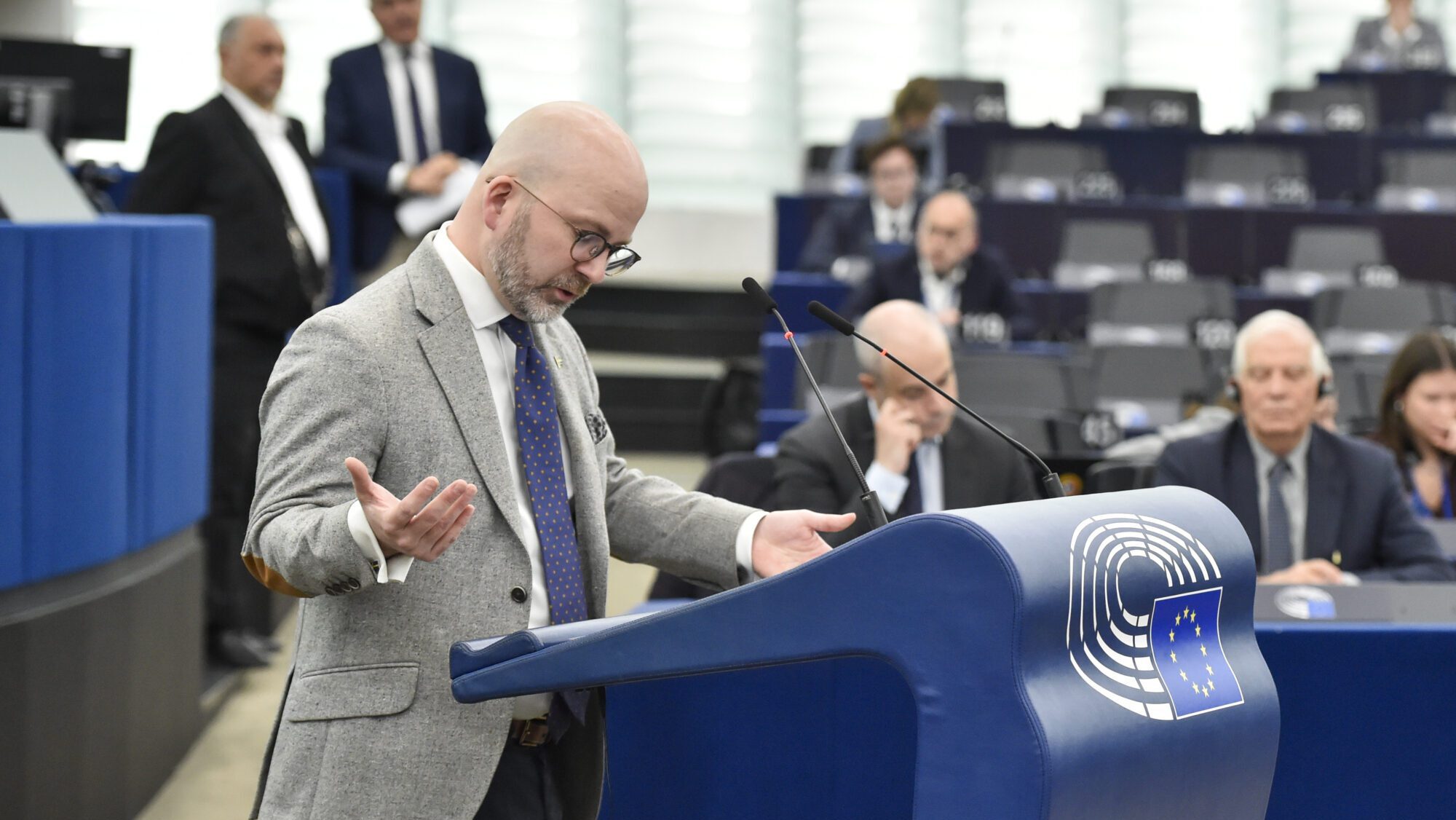
Charlie Weimers
Eric VIDAL/© European Union 2024 – Source : EP
Efforts to proscribe Iran’s elite Islamic Revolutionary Guard Corps (IRGC) at an EU-wide level are simmering this week in Brussels, as member states and MEPs squabble over what stance the bloc should take in the ongoing standoff between Iran and Israel.
Tehran’s recent aggression towards Tel Aviv has accelerated moves to include the IRGC on Brussels’ list of terror organisations, with the EU slowly ratcheting up sanctions against the Iranian regime earlier this week but falling short of fulfilling American demands to restrict oil imports.
EU foreign policy chief Josep Borrell is stalling moves to ban the IRGC, claiming that there is a lack of evidence that doing so would require approval by at least one court in any member state.
This assertion was challenged Wednesday in Brussels by Swedish Democrat MEP Charlie Weimers, who presented leaked EU Council documents that contradicted Borrell’s version of the criteria for banning the IRGC:
That is nonsense. Here, I have the council’s secret legal opinion. Nowhere in this document does it say that it has to be an authority in the EU. You know that. You knew the truth. You shamelessly lied to protect the IRGC.
Weimers went on to have his microphone cut off by parliamentary officials for referring to Borrell as a ‘liar’ within the chamber.
The documents, seen by The European Conservative, attempt to define a “competent national authority” substantial enough to provide evidence for an IRGC ban. One specifically mentions the UK’s Home Office, which is pondering a similar terrorist designation for the armed Iranians.
The leak blows holes in the EU’s—and specifically Borrell’s—failure to apply the category ‘terrorist’. The Spanish-born Eurocrat was previously accused of left-wing, pro-Palestinian bias by more centre-right elements within the European Parliament (EP), with many suspecting him of not wanting to alienate Iran.
Eurocrats were taken by surprise following a repelled Iranian drone attack on Israel in the aftermath of the IDF’s unconfirmed bombing of the Iranian consulate in Damascus on April 1st. Amid rising fears of further conflict between Israel and Iranian-backed militias in Lebanon, the potential escalation of violence in the region is dividing the EP.
Iran’s attack on Israel prompted a non-binding resolution in the Parliament, which was passed overwhelmingly on Thursday, asking MEPs to acknowledge the “destabilising role that the Iranian regime and its network of non-state actors play in the Middle East.”
The vote came as European naval vessels were deployed in the Red Sea in a joint EU effort against an Iranian-funded Houthi insurgency targeting the Continent’s supply lines from Asia.
The resolution on #Iran regime attacks and need for de-escalation passed with broad majority!
— Hannah Neumann (@HNeumannMEP) April 25, 2024
Key points:
▶️ condems the attacks of the #Iran|ian regime on #Israel
▶️ asks all parties to avoid further escalation.
▶️ calls for diplomatic efforts to de-escalate tensions
(1/3) pic.twitter.com/6ap31WITtI
Many regard the IRGC as Iran’s de facto shadow government—operational across the Middle East advancing Tehran’s foreign policy agenda—with the U.S. designating the group a terror organisation in 2019. Iranian ‘kamikaze’ drones assisting Russia in Ukraine have stoked further condemnation. Belgium has taken a particular lead in advocating for the IRGC to be listed as a terrorist organisation at an EU level, with the group linked by Germany’s intelligence agency to antisemitic attacks on synagogues in 2022.
Despite previously backing the doomed Joint Comprehensive Plan of Action (JCPOA) nuclear agreement, the EU has gradually increased restrictions on the Iranian government. Tensions spiked due to Iran’s arrest of Swedish EU official Johan Floderus in April 2022, in what Eurocrats have branded an act of ‘hostage diplomacy.’
In contrast, Swedish populist Weimers—known for his vocal opposition to mass migration—has rallied reluctant EU officials against the Iranian regime, even speaking alongside the country’s exiled Crown Prince in Brussels last year.
